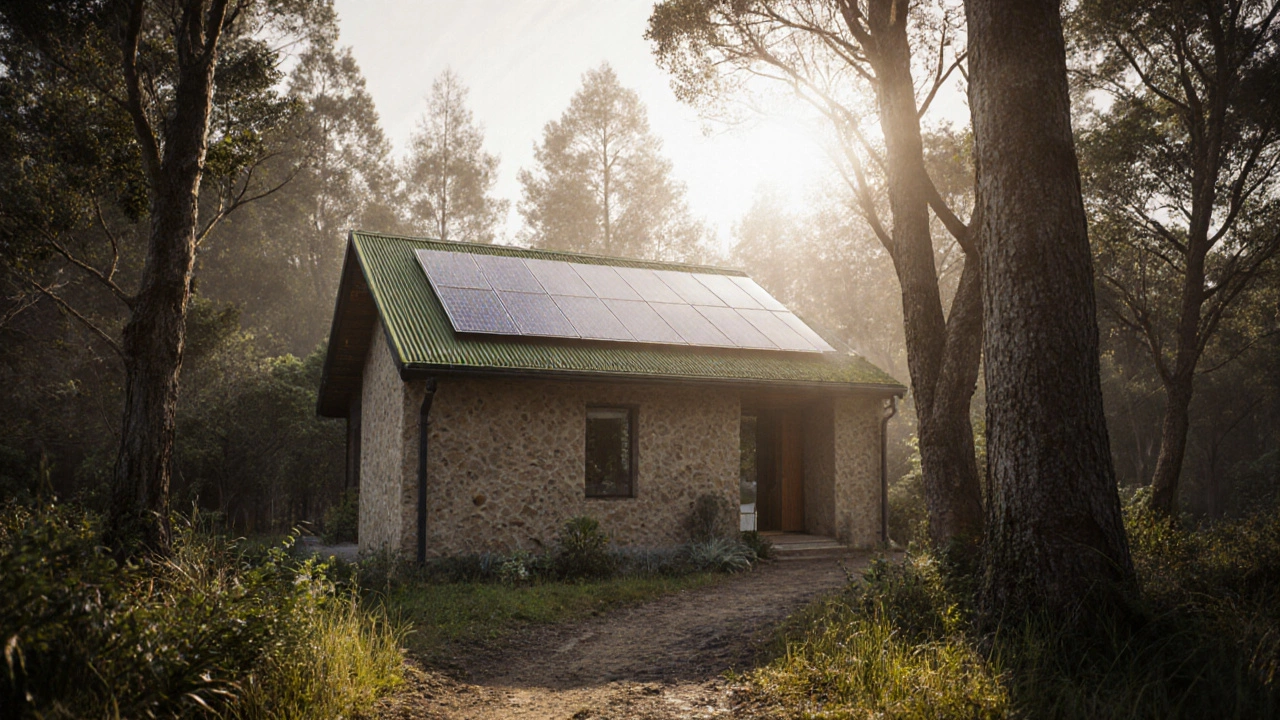Off-Grid Home: Real Living Without Power Lines or Pipes
An off-grid home, a self-sufficient dwelling that operates without connections to public utilities like electricity, water, or sewage systems. Also known as off-grid living, it’s not about escaping society—it’s about choosing a simpler, quieter way to live, often tucked into woods, hills, or coastal spots across the UK. People who live this way don’t just want to save money. They want control. Control over their energy, their water, even their waste. And they’re not living in tents. Many of these homes are cozy, well-built cottages with solar panels on the roof, rainwater catchment systems, and composting toilets. Some even have wood-burning stoves that heat the whole house in winter.
Setting up an off-grid home, a self-sufficient dwelling that operates without connections to public utilities like electricity, water, or sewage systems. Also known as off-grid living, it’s not about escaping society—it’s about choosing a simpler, quieter way to live, often tucked into woods, hills, or coastal spots across the UK. isn’t just about buying solar panels. It’s about matching your needs to your location. A cottage in the Scottish Highlands needs different systems than one in Devon. You need to think about sunlight hours, rainfall, winter temps, and even local planning rules. Some people start small—adding solar power first, then a well, then a septic tank. Others go all in at once. The key? Start with what you can manage. You don’t need to be a survivalist. You just need to be willing to learn.
What makes this lifestyle possible today? Better tech. Solar panels are cheaper than ever. Battery storage holds more power. Water filters clean rainwater safely. And more UK landowners are open to quiet, low-impact homes. You’ll find these setups in Cornwall, the Lake District, and even on the edges of Wales. They’re not just for eco-warriors. They’re for teachers, retirees, remote workers—people who want peace, quiet, and a real connection to the land.
There’s a reason this trend is growing. When you live off-grid, you stop worrying about bills. You stop blaming the grid when the lights go out. You learn to use less, waste less, and appreciate more. It’s not perfect. There are days when the sun doesn’t shine for a week. But on clear mornings, with coffee brewing from a wood stove and birds outside, it feels like the only way to live.
Below, you’ll find real stories, cost breakdowns, and practical guides from people who’ve done it. No fluff. No hype. Just what works—and what doesn’t—in the UK’s quiet corners.
Best Places to Build an Eco-Friendly House in 2025
Discover the top places around the world to build an eco-friendly house in 2025, where climate, energy access, and local incentives make sustainable living affordable and practical.
- Oct, 27 2025
- 0 Comments
